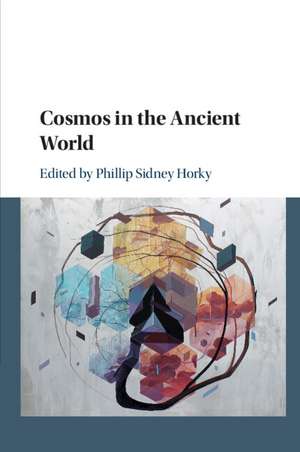Cosmos in the Ancient World
Editat de Phillip Sidney Horkyen Limba Engleză Paperback – 29 iun 2022
| Toate formatele și edițiile | Preț | Express |
|---|---|---|
| Paperback (1) | 265.50 lei 6-8 săpt. | |
| Cambridge University Press – 29 iun 2022 | 265.50 lei 6-8 săpt. | |
| Hardback (1) | 757.52 lei 6-8 săpt. | |
| Cambridge University Press – 3 iul 2019 | 757.52 lei 6-8 săpt. |
Preț: 265.50 lei
Nou
Puncte Express: 398
Preț estimativ în valută:
50.82€ • 55.22$ • 42.72£
50.82€ • 55.22$ • 42.72£
Carte tipărită la comandă
Livrare economică 21 aprilie-05 mai
Preluare comenzi: 021 569.72.76
Specificații
ISBN-13: 9781108438223
ISBN-10: 1108438229
Pagini: 370
Dimensiuni: 152 x 229 x 20 mm
Greutate: 0.49 kg
Editura: Cambridge University Press
Colecția Cambridge University Press
Locul publicării:Cambridge, United Kingdom
ISBN-10: 1108438229
Pagini: 370
Dimensiuni: 152 x 229 x 20 mm
Greutate: 0.49 kg
Editura: Cambridge University Press
Colecția Cambridge University Press
Locul publicării:Cambridge, United Kingdom
Cuprins
Introduction Phillip Sidney Horky; 1. When did Kosmos become the Kosmos? Phillip Sidney Horky; 2. Ordering the universe in speech: Kosmos and Diakosmos in Parmenides' poem Arnaud Macé; 3. Diakosmêsis Malcolm Schofield; 4. Aristotle on Kosmos and Kosmoi Monte Ransome Johnson; 5. Order and orderliness: the myth of 'inner beauty' in Plato George Boys-Stones; 6. Polis as Kosmos in Plato's laws Luc Brisson; 7. Relating to the world, encountering the other: Plotinus on cosmic and human action Pauliina Remes; 8. Tradition and innovation in the Kosmos-Polis analogy Carol Atack; 9. Cosmic choruses: metaphor and performance Renaud Gagné; 10. All the world's a stage: Contemplatio Mundi in Roman theatre Robert Germany; 11. The architectural representation of the Kosmos from Varro to Hadrian Gilles Sauron; 12. 'The deep-sticking boundary stone': cosmology, sublimity, and knowledge in Lucretius' De rerum natura and Seneca's Naturales quaestiones W. H. Shearin; 13. Cosmic spiritualism among the Pythagoreans, Stoics, Jews, and early Christians Phillip Sidney Horky; Afterword Victoria Wohl.
Descriere
Traces the concept of kosmos as order, arrangement, and ornament in ancient philosophy, literature, and aesthetics.
